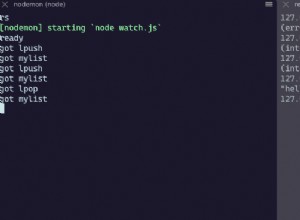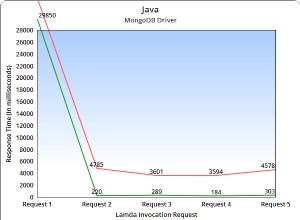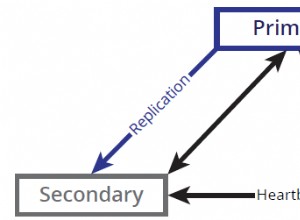Uma API 'fortemente tipada' disponível no cliente Redis C# do Service Stack para fazer com que todas as operações Redis Value sejam aplicadas a qualquer tipo c#
API de cliente genérica de tipo forte #
Abaixo está a API fortemente tipada à qual você tem acesso após chamar
IRedisClient.As<T>() por exemplo.:using (var redisClient = new RedisClient())
{
var redis = redisClient.As<MyPocoType>();
}
A variável redis agora contém um cliente genérico fortemente tipado que permite que as operações de valor Redis sejam aplicadas em
MyPocoType . A interface abaixo lista todas as operações disponíveis:public interface IRedisTypedClient<T>
: IBasicPersistenceProvider<T>
{
IHasNamed<IRedisList<T>> Lists { get; set; }
IHasNamed<IRedisSet<T>> Sets { get; set; }
IHasNamed<IRedisSortedSet<T>> SortedSets { get; set; }
IRedisHash<TKey, T> GetHash<TKey>(string hashId);
IRedisTypedTransaction<T> CreateTransaction();
IDisposable AcquireLock();
IDisposable AcquireLock(TimeSpan timeOut);
int Db { get; set; }
List<string> GetAllKeys();
T this[string key] { get; set; }
string SequenceKey { get; set; }
void SetSequence(int value);
int GetNextSequence();
RedisKeyType GetEntryType(string key);
string GetRandomKey();
void SetEntry(string key, T value);
void SetEntry(string key, T value, TimeSpan expireIn);
bool SetEntryIfNotExists(string key, T value);
T GetValue(string key);
T GetAndSetValue(string key, T value);
bool ContainsKey(string key);
bool RemoveEntry(string key);
bool RemoveEntry(params string[] args);
bool RemoveEntry(params IHasStringId[] entities);
int IncrementValue(string key);
int IncrementValueBy(string key, int count);
int DecrementValue(string key);
int DecrementValueBy(string key, int count);
bool ExpireEntryIn(string key, TimeSpan expiresAt);
bool ExpireEntryAt(string key, DateTime dateTime);
TimeSpan GetTimeToLive(string key);
void Save();
void SaveAsync();
void FlushDb();
void FlushAll();
T[] SearchKeys(string pattern);
List<T> GetValues(List<string> keys);
List<T> GetSortedEntryValues(IRedisSet<T> fromSet, int startingFrom, int endingAt);
HashSet<T> GetAllItemsFromSet(IRedisSet<T> fromSet);
void AddItemToSet(IRedisSet<T> toSet, T item);
void RemoveItemFromSet(IRedisSet<T> fromSet, T item);
T PopItemFromSet(IRedisSet<T> fromSet);
void MoveBetweenSets(IRedisSet<T> fromSet, IRedisSet<T> toSet, T item);
int GetSetCount(IRedisSet<T> set);
bool SetContainsItem(IRedisSet<T> set, T item);
HashSet<T> GetIntersectFromSets(params IRedisSet<T>[] sets);
void StoreIntersectFromSets(IRedisSet<T> intoSet, params IRedisSet<T>[] sets);
HashSet<T> GetUnionFromSets(params IRedisSet<T>[] sets);
void StoreUnionFromSets(IRedisSet<T> intoSet, params IRedisSet<T>[] sets);
HashSet<T> GetDifferencesFromSet(IRedisSet<T> fromSet, params IRedisSet<T>[] withSets);
void StoreDifferencesFromSet(IRedisSet<T> intoSet, IRedisSet<T> fromSet, params IRedisSet<T>[] withSets);
T GetRandomItemFromSet(IRedisSet<T> fromSet);
List<T> GetAllItemsFromList(IRedisList<T> fromList);
List<T> GetRangeFromList(IRedisList<T> fromList, int startingFrom, int endingAt);
List<T> SortList(IRedisList<T> fromList, int startingFrom, int endingAt);
void AddItemToList(IRedisList<T> fromList, T value);
void PrependItemToList(IRedisList<T> fromList, T value);
T RemoveStartFromList(IRedisList<T> fromList);
T BlockingRemoveStartFromList(IRedisList<T> fromList, TimeSpan? timeOut);
T RemoveEndFromList(IRedisList<T> fromList);
void RemoveAllFromList(IRedisList<T> fromList);
void TrimList(IRedisList<T> fromList, int keepStartingFrom, int keepEndingAt);
int RemoveItemFromList(IRedisList<T> fromList, T value);
int RemoveItemFromList(IRedisList<T> fromList, T value, int noOfMatches);
int GetListCount(IRedisList<T> fromList);
T GetItemFromList(IRedisList<T> fromList, int listIndex);
void SetItemInList(IRedisList<T> toList, int listIndex, T value);
//Queue operations
void EnqueueItemOnList(IRedisList<T> fromList, T item);
T DequeueItemFromList(IRedisList<T> fromList);
T BlockingDequeueItemFromList(IRedisList<T> fromList, TimeSpan? timeOut);
//Stack operations
void PushItemToList(IRedisList<T> fromList, T item);
T PopItemFromList(IRedisList<T> fromList);
T BlockingPopItemFromList(IRedisList<T> fromList, TimeSpan? timeOut);
T PopAndPushItemBetweenLists(IRedisList<T> fromList, IRedisList<T> toList);
void AddItemToSortedSet(IRedisSortedSet<T> toSet, T value);
void AddItemToSortedSet(IRedisSortedSet<T> toSet, T value, double score);
bool RemoveItemFromSortedSet(IRedisSortedSet<T> fromSet, T value);
T PopItemWithLowestScoreFromSortedSet(IRedisSortedSet<T> fromSet);
T PopItemWithHighestScoreFromSortedSet(IRedisSortedSet<T> fromSet);
bool SortedSetContainsItem(IRedisSortedSet<T> set, T value);
double IncrementItemInSortedSet(IRedisSortedSet<T> set, T value, double incrementBy);
int GetItemIndexInSortedSet(IRedisSortedSet<T> set, T value);
int GetItemIndexInSortedSetDesc(IRedisSortedSet<T> set, T value);
List<T> GetAllItemsFromSortedSet(IRedisSortedSet<T> set);
List<T> GetAllItemsFromSortedSetDesc(IRedisSortedSet<T> set);
List<T> GetRangeFromSortedSet(IRedisSortedSet<T> set, int fromRank, int toRank);
List<T> GetRangeFromSortedSetDesc(IRedisSortedSet<T> set, int fromRank, int toRank);
IDictionary<T, double> GetAllWithScoresFromSortedSet(IRedisSortedSet<T> set);
IDictionary<T, double> GetRangeWithScoresFromSortedSet(IRedisSortedSet<T> set, int fromRank, int toRank);
IDictionary<T, double> GetRangeWithScoresFromSortedSetDesc(IRedisSortedSet<T> set, int fromRank, int toRank);
List<T> GetRangeFromSortedSetByLowestScore(IRedisSortedSet<T> set, string fromStringScore, string toStringScore);
List<T> GetRangeFromSortedSetByLowestScore(IRedisSortedSet<T> set, string fromStringScore, string toStringScore, int? skip, int? take);
List<T> GetRangeFromSortedSetByLowestScore(IRedisSortedSet<T> set, double fromScore, double toScore);
List<T> GetRangeFromSortedSetByLowestScore(IRedisSortedSet<T> set, double fromScore, double toScore, int? skip, int? take);
IDictionary<T, double> GetRangeWithScoresFromSortedSetByLowestScore(IRedisSortedSet<T> set, string fromStringScore, string toStringScore);
IDictionary<T, double> GetRangeWithScoresFromSortedSetByLowestScore(IRedisSortedSet<T> set, string fromStringScore, string toStringScore, int? skip, int? take);
IDictionary<T, double> GetRangeWithScoresFromSortedSetByLowestScore(IRedisSortedSet<T> set, double fromScore, double toScore);
IDictionary<T, double> GetRangeWithScoresFromSortedSetByLowestScore(IRedisSortedSet<T> set, double fromScore, double toScore, int? skip, int? take);
List<T> GetRangeFromSortedSetByHighestScore(IRedisSortedSet<T> set, string fromStringScore, string toStringScore);
List<T> GetRangeFromSortedSetByHighestScore(IRedisSortedSet<T> set, string fromStringScore, string toStringScore, int? skip, int? take);
List<T> GetRangeFromSortedSetByHighestScore(IRedisSortedSet<T> set, double fromScore, double toScore);
List<T> GetRangeFromSortedSetByHighestScore(IRedisSortedSet<T> set, double fromScore, double toScore, int? skip, int? take);
IDictionary<T, double> GetRangeWithScoresFromSortedSetByHighestScore(IRedisSortedSet<T> set, string fromStringScore, string toStringScore);
IDictionary<T, double> GetRangeWithScoresFromSortedSetByHighestScore(IRedisSortedSet<T> set, string fromStringScore, string toStringScore, int? skip, int? take);
IDictionary<T, double> GetRangeWithScoresFromSortedSetByHighestScore(IRedisSortedSet<T> set, double fromScore, double toScore);
IDictionary<T, double> GetRangeWithScoresFromSortedSetByHighestScore(IRedisSortedSet<T> set, double fromScore, double toScore, int? skip, int? take);
int RemoveRangeFromSortedSet(IRedisSortedSet<T> set, int minRank, int maxRank);
int RemoveRangeFromSortedSetByScore(IRedisSortedSet<T> set, double fromScore, double toScore);
int GetSortedSetCount(IRedisSortedSet<T> set);
double GetItemScoreInSortedSet(IRedisSortedSet<T> set, T value);
int StoreIntersectFromSortedSets(IRedisSortedSet<T> intoSetId, params IRedisSortedSet<T>[] setIds);
int StoreUnionFromSortedSets(IRedisSortedSet<T> intoSetId, params IRedisSortedSet<T>[] setIds);
bool HashContainsEntry<TKey>(IRedisHash<TKey, T> hash, TKey key);
bool SetEntryInHash<TKey>(IRedisHash<TKey, T> hash, TKey key, T value);
bool SetEntryInHashIfNotExists<TKey>(IRedisHash<TKey, T> hash, TKey key, T value);
void SetRangeInHash<TKey>(IRedisHash<TKey, T> hash, IEnumerable<KeyValuePair<TKey, T>> keyValuePairs);
T GetValueFromHash<TKey>(IRedisHash<TKey, T> hash, TKey key);
bool RemoveEntryFromHash<TKey>(IRedisHash<TKey, T> hash, TKey key);
int GetHashCount<TKey>(IRedisHash<TKey, T> hash);
List<TKey> GetHashKeys<TKey>(IRedisHash<TKey, T> hash);
List<T> GetHashValues<TKey>(IRedisHash<TKey, T> hash);
Dictionary<TKey, T> GetAllEntriesFromHash<TKey>(IRedisHash<TKey, T> hash);
}
Interface comum de acesso a dados #
Incluindo os métodos acima, o cliente genérico também implementa operações de acesso a dados comuns não específicas do Redis que podem ser facilmente implementadas por outros provedores de persistência de dados caso você queira trocar de provedores no futuro.
public interface IBasicPersistenceProvider<T>
: IDisposable
{
T GetById(string id);
IList<T> GetByIds(ICollection<string> ids);
IList<T> GetAll();
T Store(T entity);
void StoreAll(IEnumerable<T> entities);
void Delete(T entity);
void DeleteById(string id);
void DeleteByIds(ICollection<string> ids);
void DeleteAll();
}
Geralmente, se você tiver apenas necessidades básicas de persistência, eu recomendaria desenvolver em relação à API de acesso a dados comum acima, pois é mais fácil para outros provedores de persistência implementarem e aumenta a probabilidade de que sua biblioteca possa ser reutilizada como está para persistir em outros armazenamentos de dados ou seja, contra um RDBMS com OrmLite, etc.




